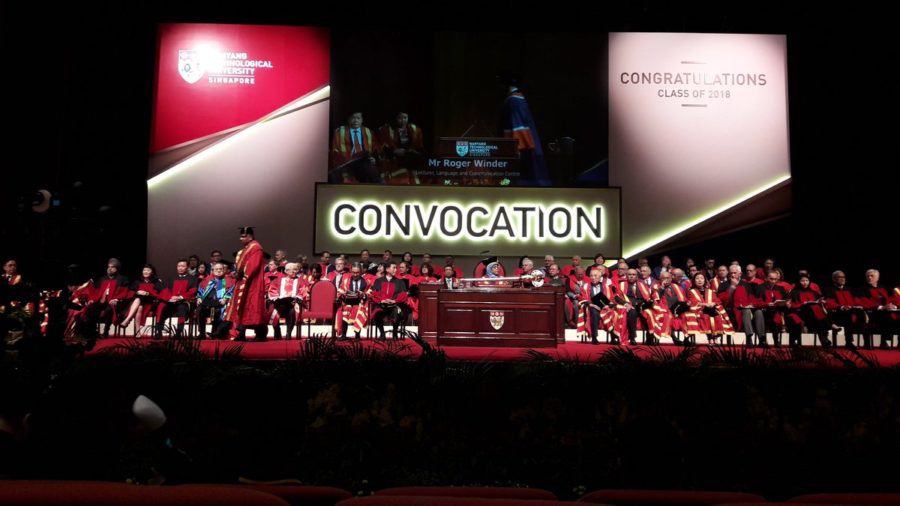1st August 2018
Top students from Singapore continue to choose UK universities and qualifications

In the last couple of weeks I’ve witnessed two great examples of the enduring strength of educational links between Singapore and the UK. On Tuesday 24th of July, I attended the Convocation ceremony at Nanyang Technological University for the first cohort of medical graduates from the Lee Kong Chiang (LKC) School of Medicine, a partnership with Imperial College London. Then on Wednesday the 25th, Minister for Education, Ong Ye Kung, presented A*STAR Scholarship in Science Awards to some of Singapore’s brightest young school leavers. Of the 33 who have chosen to study overseas, 20 have opted for one of the UK’s top universities.
The LKC/Imperial collaboration is clearly destined for success. The 52 new doctors who have graduated from the School have benefited from innovative teaching approaches, as well as superb state-of-the-art facilities at the new Novena campus building. But what is really interesting is that having helped to develop and deliver the new curriculum and teaching approaches at the School in Singapore, Imperial College is now applying the lessons learned to its School of Medicine in London – a great example of the two-way benefits of transnational education.
The same applies to the A*STAR Scholarships. From their inception over 25 years ago, a high proportion of these Scholars have chosen to study in the UK. On their return to Singapore to work in one of A*STAR’s research institutes, invariably they maintain close links with the departments where they studied in the UK, leading to new research collaborations and commercial innovations, which benefit both sides.
In the last year, Newcastle University has opened NewRIIS (Newcastle Research Innovation Institute) in Jurong. It is providing continuous professional development programmes in areas like visualisation techniques or smart grids, and post-graduate programmes in marine technology and process safety and risk management – areas of direct relevance to Singapore’s future economic development.
Over 100 Singaporean students attend Dundee University in Scotland. Dundee is a world leader in biological sciences and the University now offers a joint honours degree with the National University of Singapore in Biological and Biomedical Sciences, drawing on the strengths of each university in biosciences. And from May next year, Dundee’s BSc degree course in Nursing and Health will be available to students in Singapore.
This is just one of example of the many UK qualifications available to people in Singapore. Remarkably, each year, over 50,000 people here study for a UK qualification, ranging from degree programmes like these, to globally-recognised accounting qualifications from ACCA, ICAS and ICAEW, to qualifications from the UK’s renowned chartered bodies, such as the Institution of Civil Engineers or the Institution of Engineering and Technology.
Students from Singapore interested in UK scholarship opportunities can get more information at https://bit.ly/2vpeiA2
People continue to be attracted to these qualifications because of the reputation that British educational institutes and professional bodies enjoy for academic rigour, professional integrity and adaptability to new technologies and knowledge.
This is helping to drive economic and social development in Southeast Asia. And of course the UK benefits, not just from the monetary value of educational exports, but from the deep friendships and long-lasting collaborations that these links engender. Over time these translate into new businesses, new investments and from time to time even into new families!
They are at the heart of the close relationship between the UK and Singapore and really are the foundation of our future.
